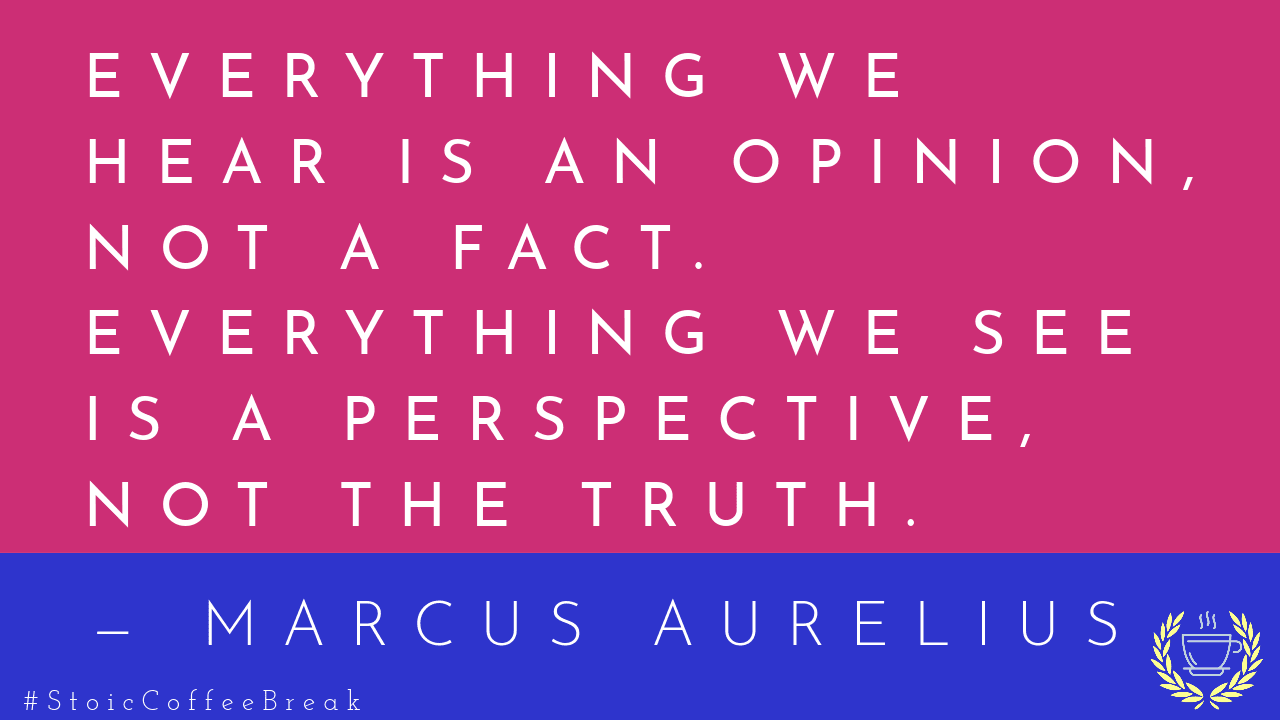Tag: truth
-

279 – Not True But Useful
“Everything we hear is an opinion, not a fact. Everything we see is a perspective, not the truth.” — Marcus Aurelius Can you hold beliefs that are not true, but are useful? The idea of “Useful, Not True” suggests that our perspective on something doesn’t have to be true, as long as it’s useful. Let’s…
-
129 – Opinions and Perspective
“Everything we hear is an opinion, not a fact. Everything we see is a perspective, not the truth.” ― Marcus Aurelius Show Notes: – So many things in our lives that we experience and accept to be “true” is simply a matter of perception.– Often we make the mistake of thinking that just because…
